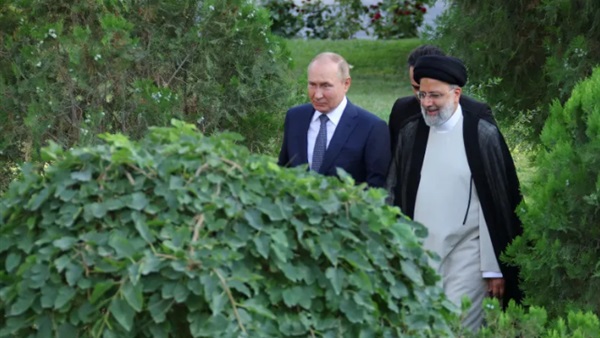Iran Supplies Drones to Russia: A Growing Partnership to Watch Amidst Conflict with Ukraine

In the wake of Russia's offense in Ukraine, Iran has
reportedly supplied Russia with unmanned aerial vehicles to fight Ukraine.
Moscow used the Iranian-made drones to target critical infrastructure and
Ukrainian cities, helping to knock out roughly half the country's power, and to
exhaust Ukrainian resources, allowing the Russians to preserve their own.
While Russia and Iran have a tumultuous history of distrust
and betrayal, they have discovered that the other has much to offer. Despite
their current relationship being more like a business partnership, Iran and
Russia have grown adept at compartmentalizing different facets of their
relationship to ensure they can partner when it suits them.
The partnership between the two nations could prove highly
effective as their ties span the economic, political, and military spheres. For
centuries, the Iranian-Russian relationship has been plagued by animosity and
outright conflict.
They fought wars
sporadically from when they first made diplomatic contact in the sixteenth
century through the eighteenth century. Then, from 1804 to 1813 and again from
1826 to 1828, the two states faced off in sizable conflicts over the control of
disputed territories in the South Caucasus. With the fall of the Soviet Union,
the relationship between Iran and Russia deepened further. The two governments
boosted military ties, and by 2000, Iran was the third-largest market for
Russian weapons. In 2007, Russia promised to sell Tehran the S-300 missile
defense system.
Trade ties, political relations, high-level exchanges, and
security cooperation kept increasing, especially after Russia annexed Crimea in
2014. But the two states still remained wary partners, with Iran believing that
Russia dragged its feet in delivering supplies for its Bushehr power plant and
in delivering the S-300 system. Even the countries' cooperation in Syria has
been complicated. After Russia invaded Ukraine, Iranian-Russian collaboration
ascended to new heights. The two countries conducted multiple high-level
meetings and deepened their economic ties. Iranian-Russian cooperation is not
yet an official alliance, but it could prove highly effective if they continue
to work together when their interests align ..was suspended. With Biden now in
the White House, the two countries’ desire to counterbalance the United States
is stronger than ever.
While Iran and Russia may still have their differences and
concerns, they have found common ground in their opposition to the United
States and its allies. They see themselves as targets of US sanctions and
interference, and they believe that by working together, they can better resist
Western pressure. They also share a vision of a world order that is more
multipolar, with greater autonomy for states and less domination by great
powers. Iran and Russia are not the only states that feel this way, but their
shared experience of isolation and marginalization has given them a unique
bond.
The partnership between Iran and Russia is not without
risks, however. Both countries have been accused of supporting extremist groups
and conducting cyber-attacks against other countries. They are also in a
vulnerable position in the international system, with few reliable allies and
many potential adversaries. The more they work together, the more they may
become targets of joint countermeasures by other powers, particularly the
United States.
In the end, the Iran-Russia axis may be less a strategic
alliance than a tactical maneuver. Both countries are pursuing their own
interests, and they will not hesitate to diverge if their calculations change.
But for now, their partnership is allowing them to achieve their goals and
assert their influence in the Middle East, Central Asia, and beyond. As long as
they continue to find mutual benefits in their cooperation, they will remain an
odd couple to watch.







